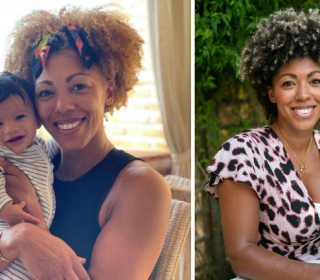Should I Consider an Ovarian Reserve Test for Conception?

Have you heard of the term ovarian reserves? Olivia Hartland Robbins, Healthista’s Editor in Chief, explains what ovarian reserves are and what they can tell you about conception.
It would be wonderful if women could predict their chances of getting pregnant before they even start trying.
For many, getting pregnant is not a natural or easy process. Around 1 in 7 couples in the UK have trouble conceiving.
Factors such as fitness, age, genetics, and lifestyle can all affect fertility.
One in seven couples in Britain may struggle to conceive
It’s possible to increase fertility and improve chances of conception by changing habits, eating healthy and exercising. We can’t go back in time when it comes down to age.
The ovarian reserves is the main factor in determining fertility.
What is the ovarian reserve?
The ovarian reserve is the number of eggs, also known as oocytes, that a woman still has in her ovaries.
The lifetime supply of eggs for women is between two and four million. Women’s ovarian reserves decrease as they age.

Women will have around 400 000 eggs at the beginning of puberty. When a woman is in her 30s, this number drops to 27,000.
The ovarian reserve of women ages.
The loss of eggs will continue until the woman reaches menopause. According to NHS , in the UK the average age of a woman who reaches menopause is around 51. Around 1,000 eggs are left in a woman’s ovary at the beginning of menopause.
Diminished ovarian reserves (DOR) are used to describe when women lose reproductive potential. The less eggs that a woman possesses, the more difficult it is for her to get pregnant.
DOR is primarily caused by ageing and menopause.
Other causes includes:
- Cigarette smoking
- Alcohol consumption
- Genetic abnormalities
- Injury
- Endometriosis
- Medical treatments that are aggressive (such as radiation or chemotherapy for cancer)
- Ovarian surgery

Who is the Ovarian Reserve Test for?
How can women make sure they have enough eggs to start their family at the right time? Fertility potential is largely dependent on age and reserve of ovarian tissue.
The ovarian reserve test measures the number of eggs that a woman may still have in her ovaries. This test will tell you how long a woman still has to conceive before she starts menopause.
If you’ve been having trouble conceiving or are considering starting a family in the future, it is worth getting an ovarian test.
The number of eggs that a woman may have left in her ovaries can be revealed.
American College of Obstetricians and Gynecologists suggests the test to women over 35 who haven’t conceived in six months of trying, or have had chemotherapy, radiotherapy, or ovarian surgery due to endometriosis.
If the test results show that a woman’s ovarian reserve is lower than normal, she has options. If necessary, women can opt to freeze their eggs to use later or to undergo fertility treatment.

What is a test?
In preparation for ovulation, the antral follicles collect fluid around several eggs during every menstrual period.
The more antral hairs a woman possesses, the more eggs and sperm she will produce, increasing her chances of getting pregnant.
The average 25-34-year-old is expected to have a reserve of 15-30 antral follicles. Less than 10 at this age would be considered low.
The following tests can be used to determine the amount of antral follicles:
Blood test for Anti-Mullerian Hormone (AMH) and Follicle-stimulating Hormone (FSH). These hormones are essential for the development of antral follicles in the ovary.
– Vaginal ultrasound for antral follicle counts (AFC), where the follicles counted are used to estimate the ovarian reserves (egg supply).
The AMH blood test is the simplest way to estimate the number ovarian antral follicules.
The AMH level is normal. This indicates that the ovarian reserve, and the antral follicles are in good condition. You can expect to have many more years of reproductive ability.
A private test can be arranged through most fertility clinics and gynecologists
The NHS does not offer this non-invasive AMH testing. A private test is available through most fertility clinics and gynecologists.
AMH tests are available for around 120 to 130 PS, like this one by LetsGetChecked.
AMH tests will give you an indication of how many eggs are in your reserve. However, they do not indicate any other problems you may have when trying to conceive.
You should contact your GP if you’re having trouble getting pregnant. He will examine your medical history, and perform a physical exam.
You may be referred to a specialist in fertility at a NHS hospital or clinic.









